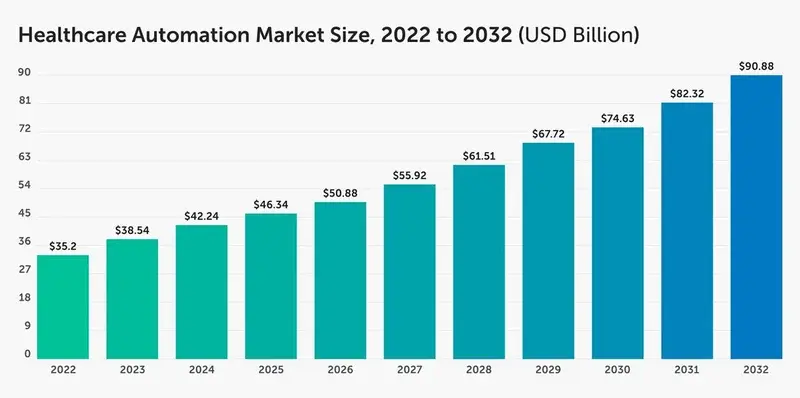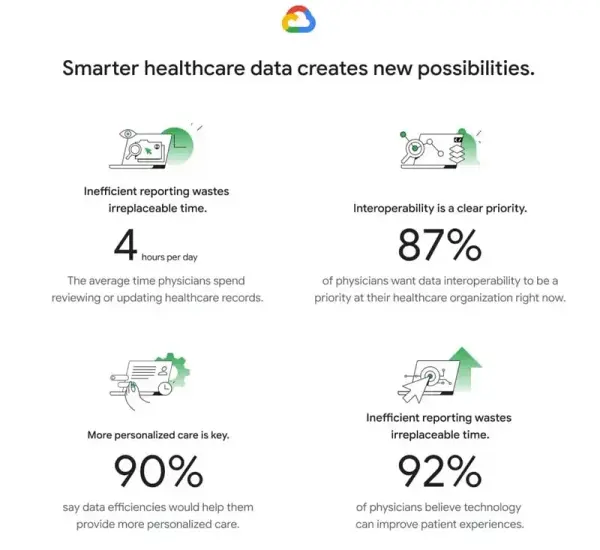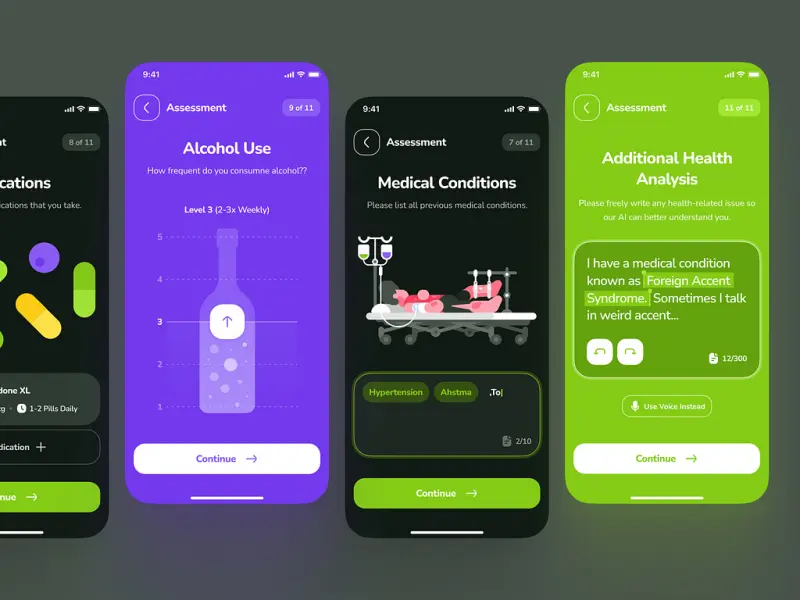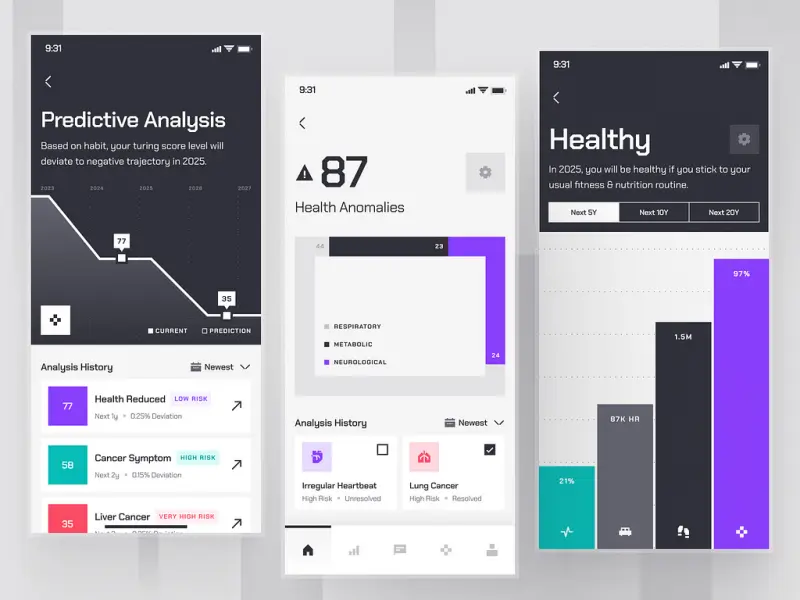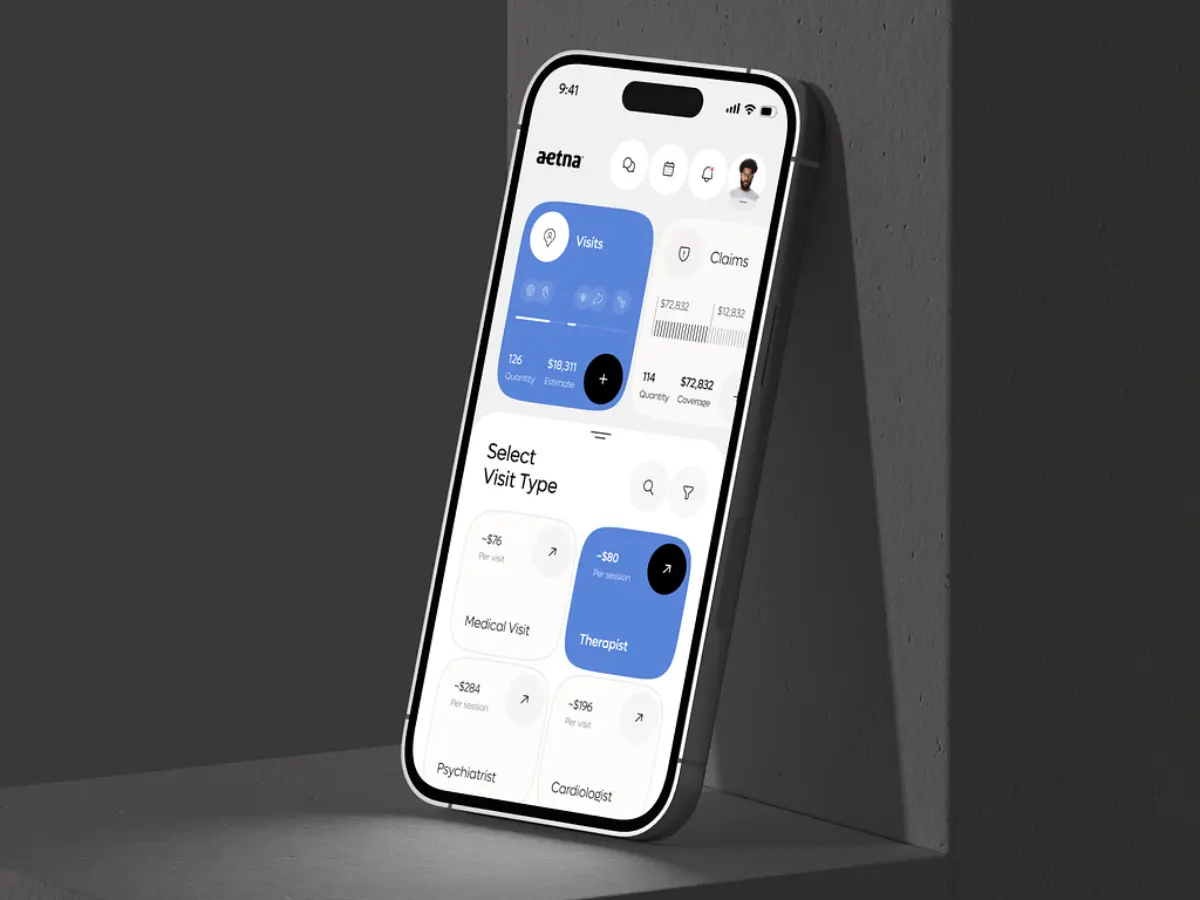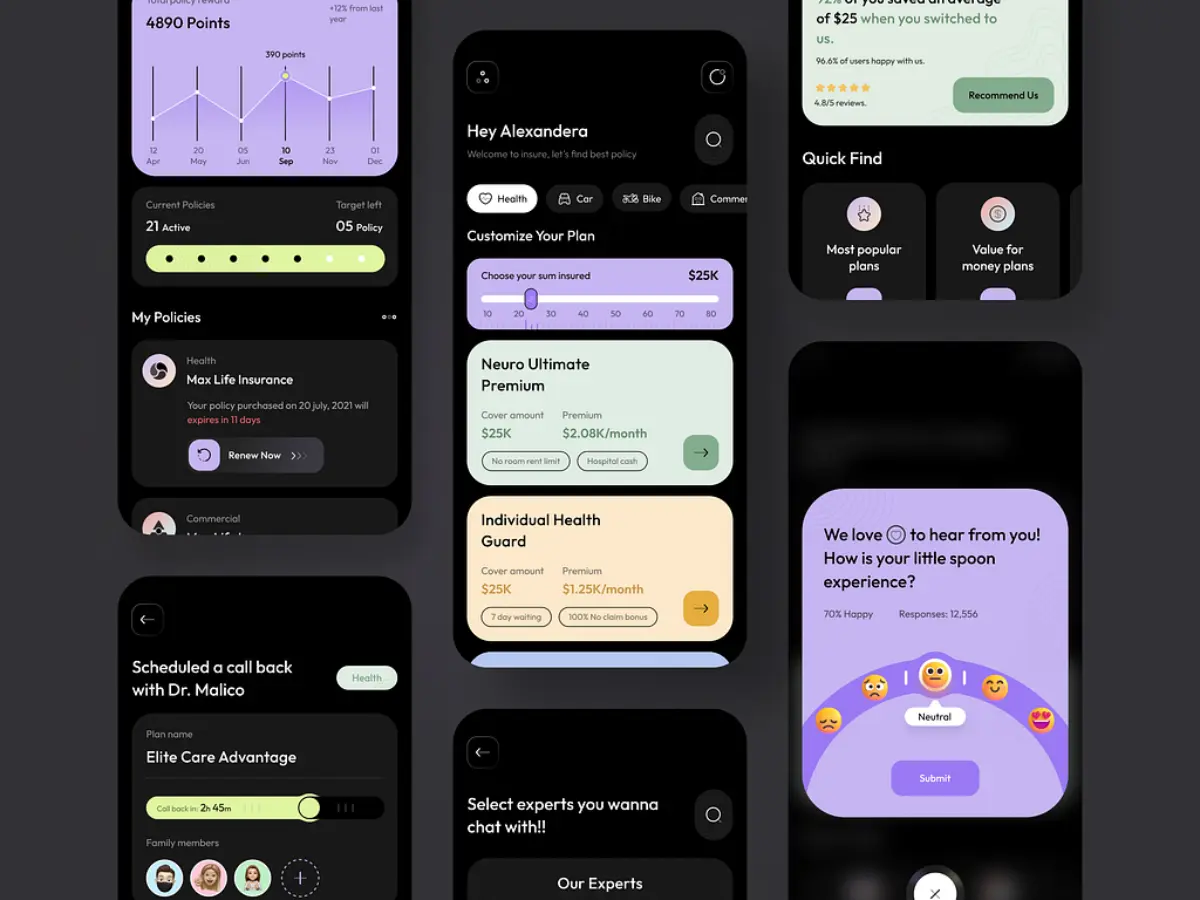Discover Everything About Automation in Healthcare Industry
- TECHVIFY Team
- 0 Comments
Automation in healthcare has dramatically changed the landscape, enabling professionals to refine their processes and deliver superior care to patients.
The data speaks for itself: In 2019, 53% of healthcare organizations had embraced AI and medical automation. By 2020, that number surged to 90%. Today, the global medical automation market is valued at more than $40 billion, with projections suggesting it will soar past $90 billion by 2030.
The impact of technology on the medical field is clear across all areas, from diagnostics and treatment to record management and communication among healthcare teams.
In this article, we’ll explore how automation in healthcare is revolutionizing the industry and discuss how hospitals can boost both efficiency and quality of care by integrating cutting-edge technologies.
I. Automation in Healthcare: Recall The Definition
Automation refers to a wide array of technological solutions designed to minimize human intervention in various processes, streamlining operations and boosting efficiency.
These automation solutions harness advances in artificial intelligence (AI), machine learning (ML), and data analytics to improve workflows, automate tasks, and support decision-making. Healthcare automation can take many forms, including:
- Software applications: Simplifying administrative tasks such as appointment scheduling, billing, and reporting.
- AI-powered automated tools: Assisting medical professionals by analyzing medical images, recognizing patterns in patient data, and even aiding in diagnoses.
- Robotic-assisted systems: Carrying out minimally invasive surgeries, dispensing medications, and automating laboratory workflows.
Through the automation of repetitive and labor-intensive tasks, healthcare providers can redirect their focus toward what truly matters—providing high-quality patient care.
II. Key Market Insights of Automation in Healthcare Industry
The potential of healthcare automation is not just a concept; it is backed by compelling market trends that underscore the growing adoption of these technologies.
Automation in Healthcare Industry Report
According to a report from Precedence Research, the global healthcare automation market was valued at an impressive USD 35.2 billion in 2022. This figure reflects the widespread integration of automation solutions across various healthcare environments. Even more striking is the market’s projected growth: by 2032, it is expected to reach an astounding USD 90.88 billion, representing an expansion of over 150% in just a decade.
With an estimated Compound Annual Growth Rate (CAGR) of 10.00% between 2023 and 2032, the healthcare automation market is poised for rapid and sustained growth, demonstrating the increasing demand for and effectiveness of automation technologies.
Another insightful report, conducted by Google Cloud, highlights the role of automation in improving data interoperability, a critical driver of physician satisfaction and patient care. The findings reveal that a striking 92% of doctors believe technology can enhance patient experiences. However, many physicians face obstacles due to inefficient data systems, which often lead to excessive scrolling, pop-ups, and manual data entry.
Automation in Healthcare Stats by Google
On average, doctors spend 4 hours daily managing records, which significantly detracts from their ability to provide timely care. This lack of data interoperability affects communication among healthcare providers (60%), the ability to identify high-risk patients (59%), and the speed at which accurate diagnoses are made (49%).
Still want to see more Healthcare articles? Check here:
III. The Benefits of Automation in Healthcare
The increasing adoption of automation within the healthcare sector is motivated by the numerous advantages it brings to both healthcare professionals and patients. Let’s explore some of the most impactful benefits:
- Boosted Efficiency and Productivity
Through the automation of everyday tasks like scheduling appointments, billing, and reporting, healthcare providers can free up significant amounts of time. This allows them to concentrate more on direct patient care, while also streamlining administrative procedures and easing the workload for staff. - Enhanced Data Accuracy and Management
Automation ensures that patient data is captured accurately, reducing the potential for errors in medical records. This accuracy supports better clinical decision-making and enhances patient safety, as providers have access to reliable and precise information. - Improved Patient Engagement and Satisfaction
With tools like automated appointment reminders, medication refill prompts, and online communication platforms, patient engagement is significantly improved. These tools help keep patients informed and active in their care, leading to higher levels of satisfaction. - Cost Reduction and Financial Efficiency
Automation can streamline processes and reduce the margin for errors, which in turn helps lower operational costs for healthcare organizations. This also translates into potential savings for patients by minimizing unnecessary expenses. - Better Care Quality and Precision
By minimizing human error and enhancing workflow efficiency, automation contributes to a higher standard of patient care. It enables healthcare providers to deliver more accurate, timely, and effective interventions. - Increased Access to Healthcare
Telehealth services and remote patient monitoring, facilitated by automation, can broaden access to healthcare for people in underserved or remote areas. This technology makes it easier for patients to receive care without geographic limitations. - Alleviation of Staff Burnout
By taking over time-consuming administrative tasks, automation reduces the strain on healthcare staff. This helps alleviate burnout, fostering a more positive and sustainable work environment for healthcare professionals.
Have a Project Idea in Mind?
Get in touch with experts for a free consultation. We’ll help you decide on next steps, explain how the development process is organized, and provide you with a free project estimate.
IV. The Expanding Role of Automation in Healthcare
Automation is transforming the healthcare industry, taking over critical administrative and clinical tasks to improve efficiency and patient outcomes. Below are some of the key areas where automation is making a significant impact:
Streamlining Scheduling and Billing Processes
Managing schedules and patient billing manually can be a daunting, time-intensive task, particularly in large healthcare facilities where numerous factors need to be accounted for. Robotic Process Automation (RPA) can take charge of these administrative functions, executing them tirelessly and with precision. Beyond just handling billing, claims, and schedules, automation can also manage patient intake, reminders, and cancellations, optimizing overall workflow.
The result is a more efficient billing and revenue cycle, smoother patient management, and a reduction in staff workload, allowing the administrative team to concentrate on responsibilities that demand leadership and strategic decision-making.
Supporting Medical Teams in High-Pressure Scenarios
Healthcare systems increasingly rely on machine learning (ML) tools to adapt to changes quickly. For instance, during flu season, hospitals typically see a surge in patient volume, requiring additional staff, reduced waiting times, more ambulances, and enhanced services.
By leveraging historical data, healthcare organizations can plan for these seasonal spikes well in advance. This adaptability was especially evident during the COVID-19 pandemic, where automation played a crucial role in enabling hospitals to respond swiftly to an ever-evolving crisis. Automated screening tools allowed patients to self-triage, and AI systems were even trained to detect pneumonia in COVID-19 patients.
Additionally, communication tools such as messaging platforms and video consultations helped keep staff and patients connected, ensuring continuity of care while reducing burnout among healthcare workers.
Automation in healthcare examples
Extracting Valuable Insights from Electronic Health Records (EHRs)
Electronic Health Records (EHRs) contain a wealth of data that, when harnessed properly, can significantly improve patient care. Automation facilitates the collection, management, and sharing of this data across departments. Streamlined data sharing enhances collaboration during treatment and helps reduce delays in scheduling surgeries or appointments. Moreover, EHRs can serve as training data for AI applications, enabling healthcare professionals to conduct patient research and refine treatment plans, ultimately enhancing the quality of care.
Enhancing the Speed and Accuracy of Diagnoses
Automation is crucial in speeding up and refining the diagnostic process. Medical professionals can diagnose conditions more quickly and with greater accuracy, while patient conditions can be continuously monitored to detect any deviations in real-time. By reducing human errors—whether due to oversight or fatigue—automation significantly enhances the reliability of diagnostics, allowing healthcare providers to react promptly and effectively to any changes in patient health.
Facilitating Patient Communication
Automation has revolutionized the way patients interact with healthcare providers. Chatbots, for example, are widely used to schedule appointments and answer common patient queries, offering a convenient way for patients to access care. Tele-consultations, which saw a massive surge in popularity over the last two years, have been another major success, allowing patients to consult with doctors from the comfort of their homes. AI-driven surveys can also be employed to gather patient feedback and analyze responses, further improving the patient experience.
Securing Patient Data Through Technology
Automation, combined with blockchain technology, is proving to be a powerful solution for safeguarding patient data and maintaining privacy. Automated case management systems guarantee that sensitive health data is accessible only to those with proper authorization, while blockchain provides an additional layer of security through encryption and other protective measures. Together, these technologies create a secure environment for managing patient records.
Improving Data Visibility for Better Decision-Making
Healthcare dashboards, powered by automation, offer enhanced visibility into various types of data, enabling healthcare administrators to monitor operational efficiency in real time. Automated tools can effortlessly collect and display clinical data, resource availability, and claims information, providing a comprehensive view of healthcare operations. These dashboards benefit both healthcare providers and insurers by offering actionable insights that can lead to more informed decision-making.
Still want to see more Healthcare articles? Check here:
V. Automation in Healthcare: A Vision for the Future
The current surge in healthcare automation is merely a glimpse of what’s to come. As technology continues to evolve at a rapid pace, we can expect even more groundbreaking innovations that will reshape the landscape of healthcare delivery. Let’s explore what the future might hold:
AI-Driven Diagnostics and Treatment Plans
As AI technology progresses, it will take on an even more prominent central role in assisting healthcare providers. Imagine AI systems capable of analyzing complex medical data in real-time, generating personalized treatment recommendations, and even performing robotic-assisted surgeries with precision unmatched by human hands. These AI-driven tools could revolutionize how healthcare professionals diagnose conditions and tailor treatments, improving both the speed and accuracy of care.
Automation in healthcare visualize
Predictive Healthcare for Proactive Interventions
AI-powered predictive algorithms could analyze patient data to detect individuals who may be at risk of developing specific conditions long before symptoms appear. By utilizing both historical and real-time data, healthcare professionals could intervene early with preventative measures and personalized care plans, potentially leading to better health outcomes and reduced healthcare costs.
Virtual Assistants and AI Chatbots
In the near future, AI-powered virtual assistants could become indispensable in patient care. These tools could provide 24/7 support, schedule appointments, answer common health-related queries, and remind patients to take their medications. As these systems become more sophisticated, they will enhance patient engagement and improve overall care coordination.
Telehealth and Remote Patient Monitoring
Telehealth is set to become even more intertwined with automation. Wearable devices and sensors could monitor patients continuously from the comfort of their homes, sending real-time data to healthcare providers. These tools could trigger alerts and prompt interventions at the first sign of a health issue, allowing for proactive care management, particularly for patients with chronic conditions.
Accelerating Drug Discovery and Development
Automation, especially when combined with AI, will continue to speed up the drug discovery and development process. AI-driven platforms can analyze vast datasets to identify potential drug candidates faster than traditional methods, which could lead to quicker breakthroughs in treatments—especially in the realm of personalized medicine.
Conclusion
Automation in healthcare is not just a trend—it’s a transformative force driving better patient outcomes, streamlined operations, and substantial cost savings. As technology rapidly advances, we can anticipate even more revolutionary innovations and limitless opportunities.
Partner with TECHVIFY and let us guide you on your journey toward smarter, more efficient healthcare solutions. Our team of experts is here to help you design, develop, and implement automation technologies that fit your unique needs. Reach out today for a free consultation and discover how our cutting-edge solutions can elevate your healthcare operations and stay ahead in this rapidly evolving industry.
TECHVIFY – Global AI & Software Solution Company
From Startups to Industry Leaders: TECHVIFY prioritizes results, not just deliverables. Accelerate your time to market and see ROI early with high-performing teams, AI (including GenAI) Software Solutions, and ODC (Offshore Development Center) services.
- Email: [email protected]
- Phone: (+84)24.77762.666




